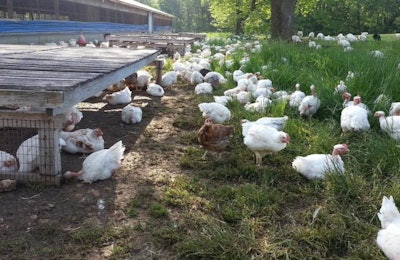
The slower-growing broiler and Global Animal Partnership (GAP) movements recently suffered a setback, as it was announced that the Crystal Lake Farms poultry processing plant in Jay, Oklahoma, would be shutting down.
While I am sad for the people who will be losing their jobs, and the community of Jay that will likely see a trickle-down effect in the economy, I have to wonder what this means for the whole GAP chicken movement.
This was a trend that has gained significant traction over the past couple of years, with many foodservice and restaurant companies signing pledges to transition their broiler chicken supply to breeds that adhere to GAP standards. Some poultry companies, like Bell & Evans and Wayne Farms, have already made investments to process GAP certified chicken.
Yet the Crystal Lake Farms plant, according to report, processes pasture-raised broilers that carry a Step 4 rating certification from GAP.
West Liberty Foods, which is also the 11th largest turkey company in the United States, acquired the Crystal Lake Farms facility in 2017. At the time the planned acquisition was announced, West Liberty CEO Ed Garrett stated: “This expansion of our business will allow us to meet the growing consumer demand for humanely grown, pasture-raised poultry.”
However, when the plant closure was announced, Gerald Lessard, Crystal Lake Farms president, told NewsOK that economics prompted the decision to close the plant.
“Economics” could mean many things, and other factors very well could have played a role, but that decision does make people wonder if there really was a demand for GAP-certified poultry products.
Will other companies see this as a sign?
It would make sense if other companies contemplating making investments in the GAP broiler market think twice before making such a decision.
If “economics” prompted a decision to close one of only a few plants that process such poultry, would the economic situation be any better for another company?
The demand for poultry products from industry standard breeds continues to be strong. Sure, like with any industry, there is still room for improvement, but is GAP-certified chicken an “improvement” that needs to be made?

















